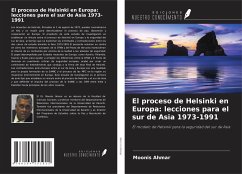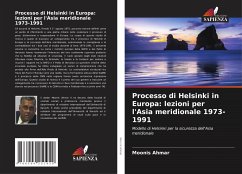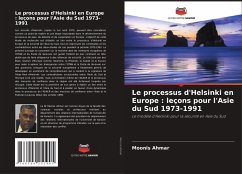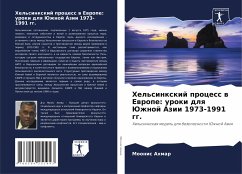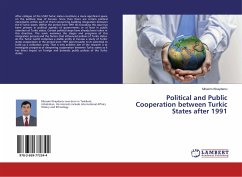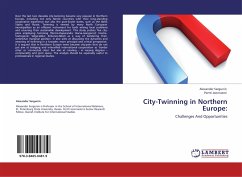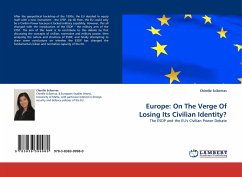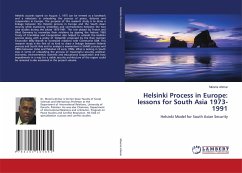
Helsinki Process in Europe: lessons for South Asia 1973-1991
Helsinki Model for South Asian Security
Versandkostenfrei!
Versandfertig in 6-10 Tagen
31,99 €
inkl. MwSt.

PAYBACK Punkte
16 °P sammeln!
Helsinki accords signed on August 1, 1975 can be termed as a landmark and a milestone in unleashing the process of peace, détente and cooperation in Europe. The purpose of this research study is to draw a linkage between the Helsinki process in Europe and the South Asian security while examining similarities and contradictions between the two case studies during the phase 1973-1991. The role played by France and West Germany to normalize their relations by signing the historic 1963 Treaty of Friendship and Cooperation also helped to unleash the Helsinki process along with a policy of 'Ostpolt...
Helsinki accords signed on August 1, 1975 can be termed as a landmark and a milestone in unleashing the process of peace, détente and cooperation in Europe. The purpose of this research study is to draw a linkage between the Helsinki process in Europe and the South Asian security while examining similarities and contradictions between the two case studies during the phase 1973-1991. The role played by France and West Germany to normalize their relations by signing the historic 1963 Treaty of Friendship and Cooperation also helped to unleash the Helsinki process along with a policy of 'Ostpoltik' proposed by the then German Chancellor Willy Brandt to normalize relations with Communist GDR. This research study is the first of its kind to draw a linkage between Helsinki process and South Asia and to analyze a momentum in SAARC process and CBMs between India and Pakistan till early 1990s. What is lacking in South Asia in terms of unleashing the process of meaningful security, political, economic, environmental, scientific and educational cooperation and how impediments in a way for a viable security architecture of the region could be removed is also examined in the present volume.



